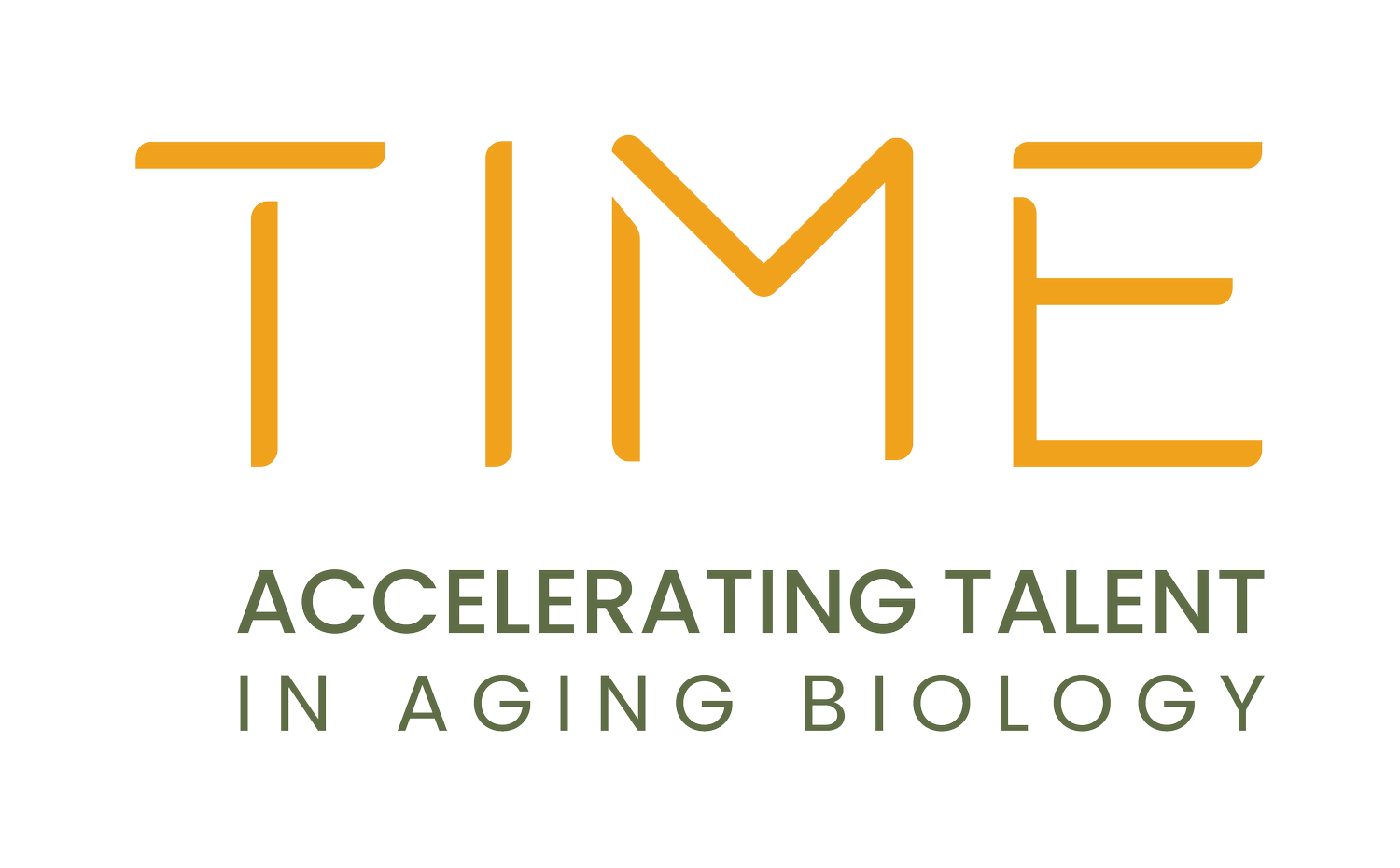Moments in TIME: Fellows Shaping the Future of Aging - Carol Magalhães
Carol Magalhães is without question a future leader in aging biology, currently working at age1, her long term goal is to get the first aging-targeted drug and reduce clinical trial costs—a step she hopes will pave the way for aging therapies across biotech. With experience in renowned labs, including the Duncan, Jewett, and Church Labs, Carol has co-authored impactful studies on ovarian health, enzyme engineering, and cellular rejuvenation factors. She has been recognized with the Goldwater Scholarship, NSF Graduate Research Fellowship, and Emergent Ventures Fellowship and was accepted into Stanford’s Biosciences PhD program, which she deferred to work at age1. A first-generation immigrant, Carol’s journey was shaped by a drive to extend healthspan and preserve autonomy for aging individuals. Her contributions go beyond the lab—she also founded the Nucleate Dojo House, a summer program supporting young biotech innovators. Carol is determined to shape a future where aging-targeted therapies become a reality.
Courtney: Hi Carol! It's always great to talk to you. To start, can you tell us about your current focus in aging biology?
Carol: Right now, I’m working at age1, but I spend a lot of my time thinking about how the first aging drug could be approved and how to reduce clinical trial costs.
Courtney: That’s a major goal! Why is this work so important to you?
Carol: Although aging is the biggest market in biotech, there have been 0 shots at getting an aging drug approved. I hope that in 30 years, we will have multiple aging drugs in the market, and every pharmaceutical company will have an aging division.
Courtney: It’s ambitious, but you’ve already made great strides. What milestones or accomplishments are you most proud of so far?
I'm proud of our recent publication from the Duncan Lab - I think this is a PoC that delaying menopause is not an outlandish idea, but that maintaining reproductive function is very realistic. I'm excited about more research and new approaches to this topic.
Courtney: It’s clear you’re making an impact. How do you see your work contributing to the field of aging biology?
Carol: I hope that the work that I'm doing at age1 will catalyze many great aging companies in the field. Long term, I want to build therapeutic companies focused on developing drugs that extend healthy lifespan by directly targeting aging.
Courtney: That’s an inspiring vision. What led you to pursue a career in aging biology?
Carol: I was inspired when I realized that aging is the single greatest risk factor in healthcare. We have all seen a loved one aging, maybe a parent or a grandparent. They might start losing their memory, or their ability to move around the world. Often, with the years, they become unable to do the things that they love and give their life meaning. In a way, it seems to me like they start dying much before their heart stops beating. They start dying when they lose the autonomy to be themselves.
Courtney: That’s powerful and very relatable. What about challenges you have encountered in your journey—how have you navigated those?
Carol: I am a first-generation immigrant and didn't have any network in the U.S. My family wasn't able to guide me on how to find opportunities and seek them, so I mostly relied on communities, like the TIME fellowship, to help me discover what opportunities and experiences were possible, and how to pursue them.
Courtney: The importance of community really shines through. What has the TIME Fellowship meant to you?
Carol: Community, community, community! I can't emphasize enough how important it is to have friends who are interested in the same things, have similar ambitions, and very likely go through the same challenges as you. There's nothing like feeling understood and seen in a peer group where you genuinely inspire each other.
Courtney: What meaningful connections have you made during the TIME Fellowship?
Carol: Some of my best friends are TIME fellows. These are people that I can ask for feedback on an application, or brainstorm project ideas with, but they are also people who I can talk about imposter syndrome, or lean on for support when the pressures feel overwhelming.
Courtney: I couldn’t agree more. Finally, what advice would you give to someone just starting to build their network in the aging research field?
Carol: My motto is “Don’t network, just make friends.” It’s about genuine connections and mutual support.




